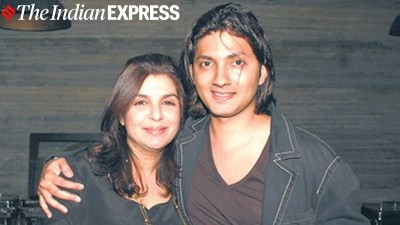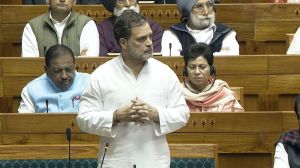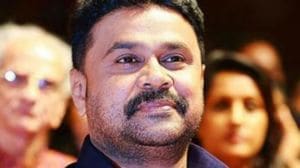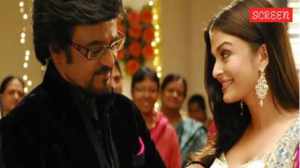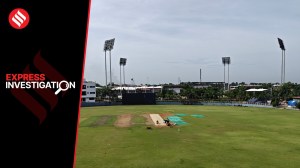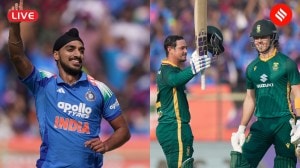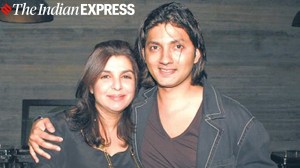“The process of preparing for a character primarily occurs within the actor. Upon hearing the storyline, ideas and perceptions about the character begin to form in our minds and develop gradually. Reading the script provides a clearer understanding of the character’s traits, behaviour, and overall nature. This was also the case with Ittoop in Pookkalam. Upon hearing the storyline and reading the script, memories of encounters with elderly people throughout my life started flooding my mind. Through imagination, the character started to take shape in my head. Day by day, the character evolved, and new ideas or traits that enhance the character emerged. For instance, Ittoop’s tremors, particularly his shaky hands, is common in elderly people. Age influences their body language, thinking patterns, speed, and reactions. These observations help in further refining and shaping the character.”
‘The Ittoop you saw is simply my interpretation’
“In the past, when we performed in plays, actors would often exaggerate certain features of their characters, such as using extremely shaky voices. These clichéd techniques were prevalent at that time but are no longer considered the standard. Nowadays, our aim is to make performances appear as natural as possible. The process of taking on character roles can be likened to learning how to ride a bicycle. Initially, it may be challenging, similar to the early days of learning how to balance on a bicycle. However, as we gain experience and become more skilled, we gradually master the art. Once we have mastered it, we can ride with our hands off the handle, stand up while riding, or even ride the bicycle backwards. The same principle applies to performing character roles,” he adds.
 Vijayaraghavan with actor KPAC Leela in the film Pookkaalam. (Image: Ganesh Raj/Facebook)
Vijayaraghavan with actor KPAC Leela in the film Pookkaalam. (Image: Ganesh Raj/Facebook)
“Undoubtedly, if someone else had portrayed Ittoop, it would have resulted in a completely different interpretation, perhaps even better. The portrayal you witnessed is simply my personal interpretation.”
‘NN Pillayum Kudumbavum’
Story continues below this ad
Born in 1951 as the son of the veteran playwright, actor, theatre director and writer NN Pillai and Chinnamma, Vijayaraghavan began his acting journey at the tender age of seven, performing in plays directed by his father. It was half a century ago that he unexpectedly ventured into the realm of cinema, making his debut in Kaapalika (1973), a film scripted by none other than NN Pillai. However, the actor maintains that he never harboured any aspirations of pursuing a career in the world of cinema.
“In those days, the world of cinema felt distant and inaccessible to us. Movie shoots primarily took place in Madras, and even the production of Kaapalika happened at Premier Studio in Mysuru. That was the first time I ever saw a film shooting. To be honest, the thought of acting in movies never truly captivated me when I first started out. My sole focus was on theatre. It was a time when my father’s drama troupe, Viswa Kerala Kala Samithi, was making remarkable contributions. The troupe was often referred to as NN Pillayum Kudumbavum (NN Pillai and family). Several members of our family were associated with it. The plays we created were of exceptional calibre, leaving an indelible impression on the audience. As a result, we became recognised and esteemed from a young age. All I desired was for that momentum to persist unchanged.”
“All individuals possess a natural inclination to exhibit themselves. Those with a heightened sense of this trait are the ones who become artistes, particularly actors. Personally, I found theatre to be the ideal platform for self-expression and display. It was in that realm where I experienced popularity and a profound sense of happiness.”
 Vijayaraghavan began his acting journey at the tender age of seven, performing in plays directed by his father. (Image: Vijayaraghavan/Facebook)
Vijayaraghavan began his acting journey at the tender age of seven, performing in plays directed by his father. (Image: Vijayaraghavan/Facebook)
A film that got shelved which influenced him to pursue a film career
Story continues below this ad
Despite Vijayaraghavan’s appearance in another film called Picnic in 1975, it was not until the 1980s that he started engaging in films more frequently. He, however, states that he began entertaining the idea of pursuing a career in cinema only much later. “During the mid-1980s, my friend Ravi Alummoodu, who was also associated with our drama troupe, approached me with an offer to cast me in his upcoming film. By that time, he had already worked on another film called Sheshakriya, which was based on M Sukumaran’s novel of the same name. Initially, I expressed my disinterest in the offer, but Ravi convinced me by assuring me that it wasn’t just a commercial venture, but rather a film that embodied the spirit of the new wave movement that was prevalent at that time. Since it was also the off-season in the theatre industry, I decided to take on the project. However, within a span of three to four days, we had to halt the shooting due to financial constraints,” he recalls.
“That incident was deeply upsetting. Word had already spread that I had departed for Mavelikara to begin shooting for the film. Therefore, the sudden cancellation of the project left me feeling embarrassed. It motivated me to seek out another opportunity to act in a film. Coincidentally, during that period, Sreekumaran Thampi was in search of actors for his upcoming film Ammakkorumma. A journalist friend of mine, CK Soman, who was eager to witness my foray into cinema, recommended me to Thampi. And that’s how I secured the role in Ammakkorumma.”
S Konnanatt’s Surumahyitta Kannugal (1983) was the first film in which the actor appeared in a lead role. However, the film failed at the box office.
 Despite Vijayaraghavan’s appearance in another film called Picnic in 1975, it was not until the 1980s that he started engaging in films more frequently. (Express archive photo)
Despite Vijayaraghavan’s appearance in another film called Picnic in 1975, it was not until the 1980s that he started engaging in films more frequently. (Express archive photo)
First taste of success
Story continues below this ad
However, Vijayaraghavan’s journey persisted, and he continued to receive offers for various films. He worked on projects such as P Chandrakumar’s Uyarum Njan Nadake and PG Viswambharan’s Pinnilavu. The turning point in his career came with the commercial success of PGV’s Ee Sabdam Innathe Sabdam (1985), where he portrayed the primary antagonist. “I got my first 100-day shield for Ee Sabdam Innathe Sabdam. Joshiy’s New Delhi (1987) happened sometime after that following which I became part of the film industry completely. I remained committed to theatre and continued to work in dramas whenever new projects were undertaken. Balancing both theatre and films became a simultaneous endeavour for me.”
Two films in which the thespian played significant roles – New Delhi and K Madhu’s Oru CBI Diary Kurippu (1988) – went on to become blockbuster hits. “It was through the portrayal of a diverse range of characters that I began to garner recognition. Films such as Ramji Rao Speaking, 1921, Meleparambil Anveedu, and my collaborations with director Shaji Kailas on movies like Ekalavyan, Mafia, Sthalathe Pradhana Payyans, and The King played a pivotal role in establishing my identity. Additionally, working on Joshiy’s films like Dhinarathrangal and Naduvazhikal, as well as some of K Madhu’s projects, contributed significantly to my growth as an actor. Notably, my character MD Ramanathan in Vinayan’s Sipayi Lahala was particularly refreshing and memorable.”
 Vijayaraghavan with Mammootty and Mohanlal. (Image: Vijayaraghavan/Facebook)
Vijayaraghavan with Mammootty and Mohanlal. (Image: Vijayaraghavan/Facebook)
‘Acting is not difficult’
Even though Vijayaraghavan has taken on a diverse range of characters, he firmly believes that “acting is not difficult”. He explains, “I think, the moment an artiste starts feeling like acting is difficult, they become bad actors. I have never encountered a role that I found particularly arduous, including my recent portrayal of a 100-year-old character in the film Pookkalam.”
Story continues below this ad
“The process of getting into the makeup for Ittoop took around three to four hours, during which I had to sit patiently. Surprisingly, I didn’t find this aspect challenging; in fact, I thoroughly enjoyed the entire process and paid close attention to even the smallest details the makeup artists were meticulously working on. The real exertion, in my experience, arises when we have to perform action sequences or scenes that demand extensive physical activity. Other than that, I believe that acting itself doesn’t demand much effort.”
In the subsequent years, the actor graced numerous films, both in leading and supporting roles. Although many of these films were small-scale productions, they still garnered attention through television broadcasts, which served as the primary medium of accessible entertainment for people back then. “Several of these characters were straightforward and uncomplicated, making them relatively easy to portray. When embodying such roles, I simply step into the shoes of these characters and respond accordingly to the given circumstances. It is only when we encounter roles that require us to exert our full potential that we must be cautious and put in extra effort,” he adds.
 Vijayaraghavan with veteran actor Thilakan on the sets of Gandhiyan. (Express archive photo)
Vijayaraghavan with veteran actor Thilakan on the sets of Gandhiyan. (Express archive photo)
Underused? ‘No complaints’
Even in the 2000s, Vijayaraghavan’s portrayals in films like Desadanam, Raavanaprabhu, Praja, Nizhalkuthu, Neythukaran, Kadhavaseshan, Rappakal, Inspector Garud, Mayavi, Big B, Innathe Chintha Vishayam, and Patham Nilayile Theevandi garnered significant acclaim. However, despite having worked on numerous films, one might argue that the industry did not fully capitalise on his exceptional acting prowess. Nevertheless, Vijayaraghavan has no complaints in that regard. “I simply accept the characters that are offered to me. After all, people approach us with roles that they believe suit us perfectly, right? Therefore, I have no complaints. I have never approached anyone seeking chances, so I have never experienced disappointment. Even the role in Desadanam was not initially intended for me. It was originally meant for another actor, but as they were unavailable, it was offered to me. That’s how the dynamics of cinema work. Haven’t there been instances where Mammootty played characters that were initially offered to Mohanlal, and vice versa? Most of the time, characters are not specifically created with a particular actor in mind. At least, that has been the case with the roles I have received.”
Story continues below this ad
‘NN Pillai, my father, is my biggest role model’
It is rare to come across an interview with Vijayaraghavan where the name NN Pillai does not take centre stage. NN Pillai, one of the most influential dramatists in Kerala’s cultural history, contributed to the realm of theatre as a playwright, director, and performer. His works have significantly influenced the sociopolitical discourses of the state, and his establishment, Viswa Kerala Kala Samithi, continues to hold a prominent position in Kerala’s cultural landscape. Productions such as Prethalokam, Kapalika, Cross Belt, Kanakku Chempakaraman, Dam, Njan Swargathil, Supreme Court, Eswaran Arrestil, and Vishamavritham are still revered as some of the finest examples of Malayalam theatre in the 20th century. NN Pillai’s portrayal of Anjooran in Siddique-Lal’s Godfather is also hailed as one of the greatest performances in the history of Malayalam cinema. When asked about whether it is NN Pillai the father or NN Pillai the artiste who inspires him the most, Vijayaraghavan affirms that it is the amalgamation of all these aspects, the NN Pillai who encompasses the human being, father, artiste, and political figure, that serves as his greatest inspiration. “He is my biggest role model.”
 Vijayaraghavan with MG Soman and NN Pillai. (Image: Vijayaraghavan/Facebook)
Vijayaraghavan with MG Soman and NN Pillai. (Image: Vijayaraghavan/Facebook)
A few years ago, Shammi Thilakan, the son of renowned Malayalam actor Thilakan, shared his experience of carrying the burden of his surname. He expressed how people often saw him solely as “Thilakan’s son,” disregarding his own individuality and unique identity. Both Thilakan and NN Pillai emerged from the theatre domain and went on to become iconic names in Malayalam history. When asked whether he ever encountered a similar situation where he was reduced to being “NN Pillai’s son,” Vijayaraghavan swiftly dismissed the question, urging that such a question should not be posed to him. “Being born as my father’s son is the greatest gift I could ever receive. There have been instances when people attributed my success to being NN Pillai’s son, saying things like, “He is NN Pillai’s son, that’s why he excels.” Hearing those words fills me with immense pride. While I don’t personally believe in reincarnation, if it were to exist, I would choose to be reborn as NN Pillai’s son without hesitation.”
Vijayaraghavan has also consistently expressed his admiration for his paternal aunt, G Omana, describing her as one of the most exceptional performers he ever witnessed. He credits her as a significant source of inspiration in his own artistic journey. Despite being a highly acclaimed theatre artiste who garnered accolades such as the state award for best theatre actress and the Kerala Sangeetha Nataka Akademi, she had limited involvement in the realm of cinema, choosing to focus primarily on theatre. Vijayaraghavan emphasises her lack of interest in pursuing film roles, stating, “She simply wasn’t interested. The theatre was her world, and she preferred to remain there, just like my dad.”
Story continues below this ad
 NN Pillai with Vijayaraghavan and his son. (Image: Vijayaraghavan/Facebook)
NN Pillai with Vijayaraghavan and his son. (Image: Vijayaraghavan/Facebook)
The past and the future
When reflecting on his 50-year journey in cinema, Vijayaraghavan was asked by indianexpress.com about his sentiments regarding the past and the future. With a chuckle, he responds, “I’m someone who doesn’t dwell on the past. Why should we look back? Even when it comes to the future… My philosophy is simple: live in the present. Acting is not only my passion but also my chosen profession. Engaging in meaningful roles brings me a sense of satisfaction and joy. As I look ahead, my hope is to continue receiving compelling characters and deliver performances that resonate with people, garnering their appreciation and enjoyment.”


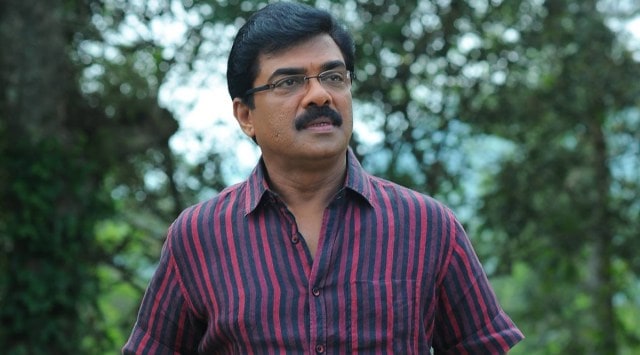

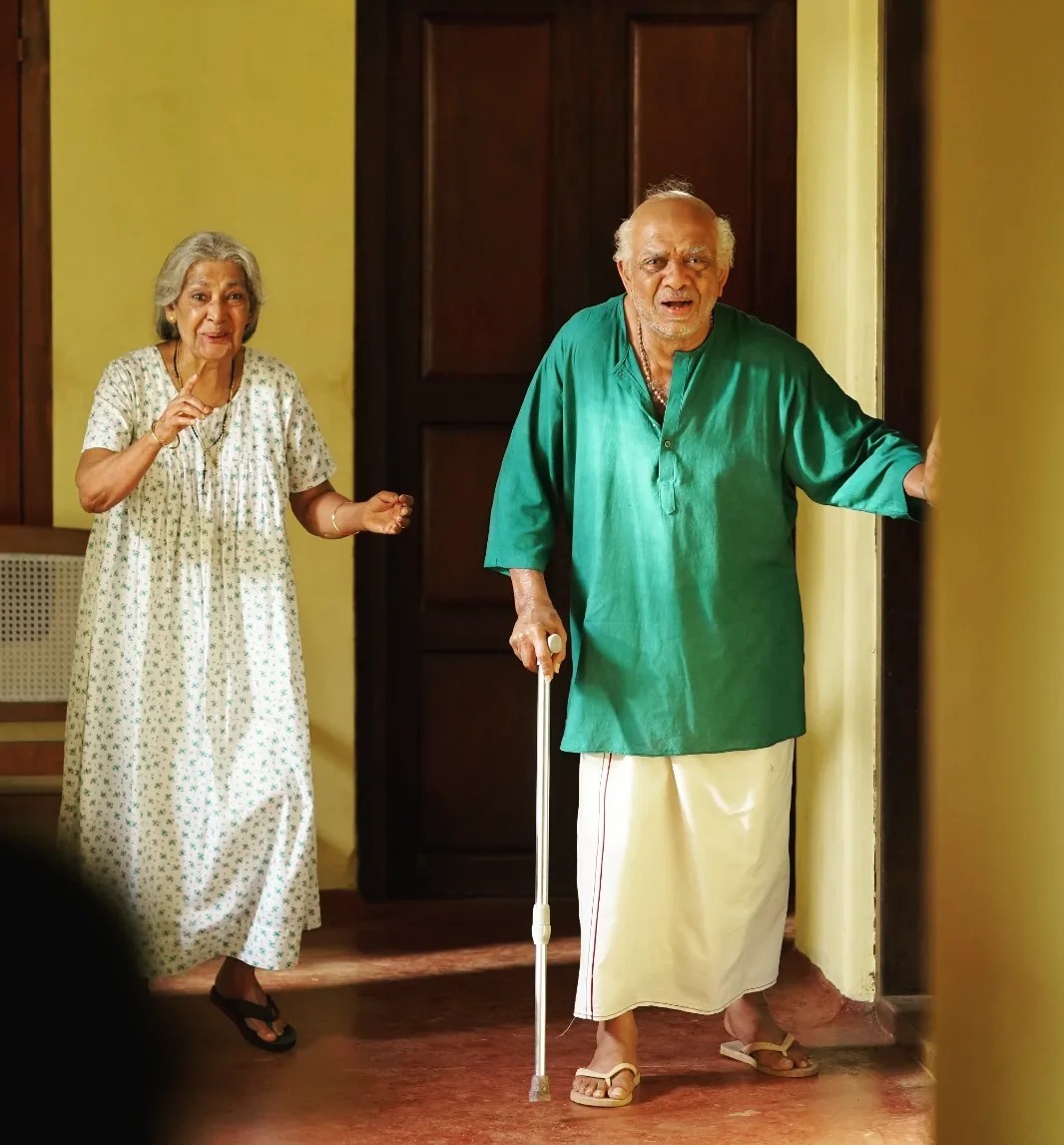 Vijayaraghavan with actor KPAC Leela in the film Pookkaalam. (Image: Ganesh Raj/Facebook)
Vijayaraghavan with actor KPAC Leela in the film Pookkaalam. (Image: Ganesh Raj/Facebook)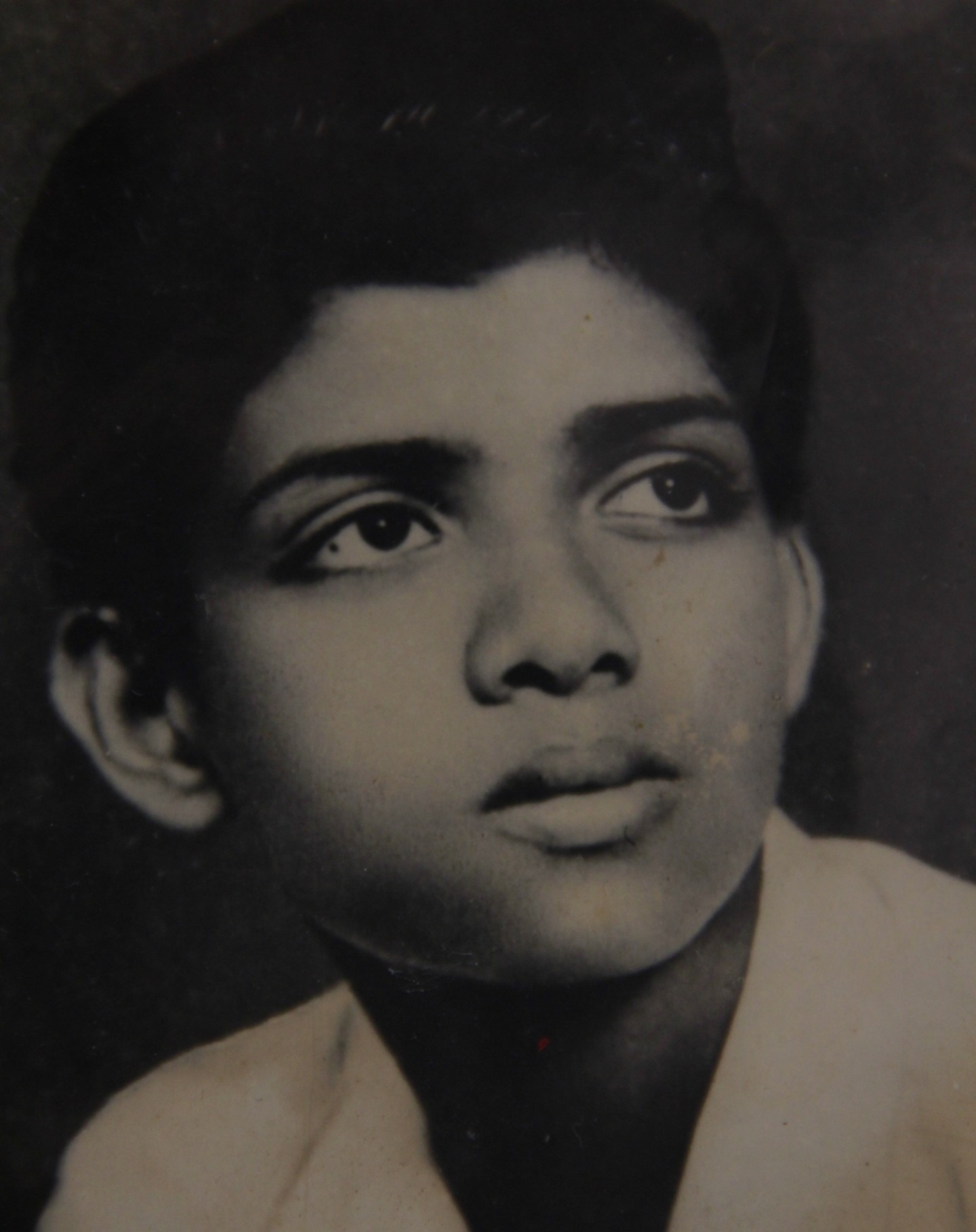 Vijayaraghavan began his acting journey at the tender age of seven, performing in plays directed by his father. (Image: Vijayaraghavan/Facebook)
Vijayaraghavan began his acting journey at the tender age of seven, performing in plays directed by his father. (Image: Vijayaraghavan/Facebook)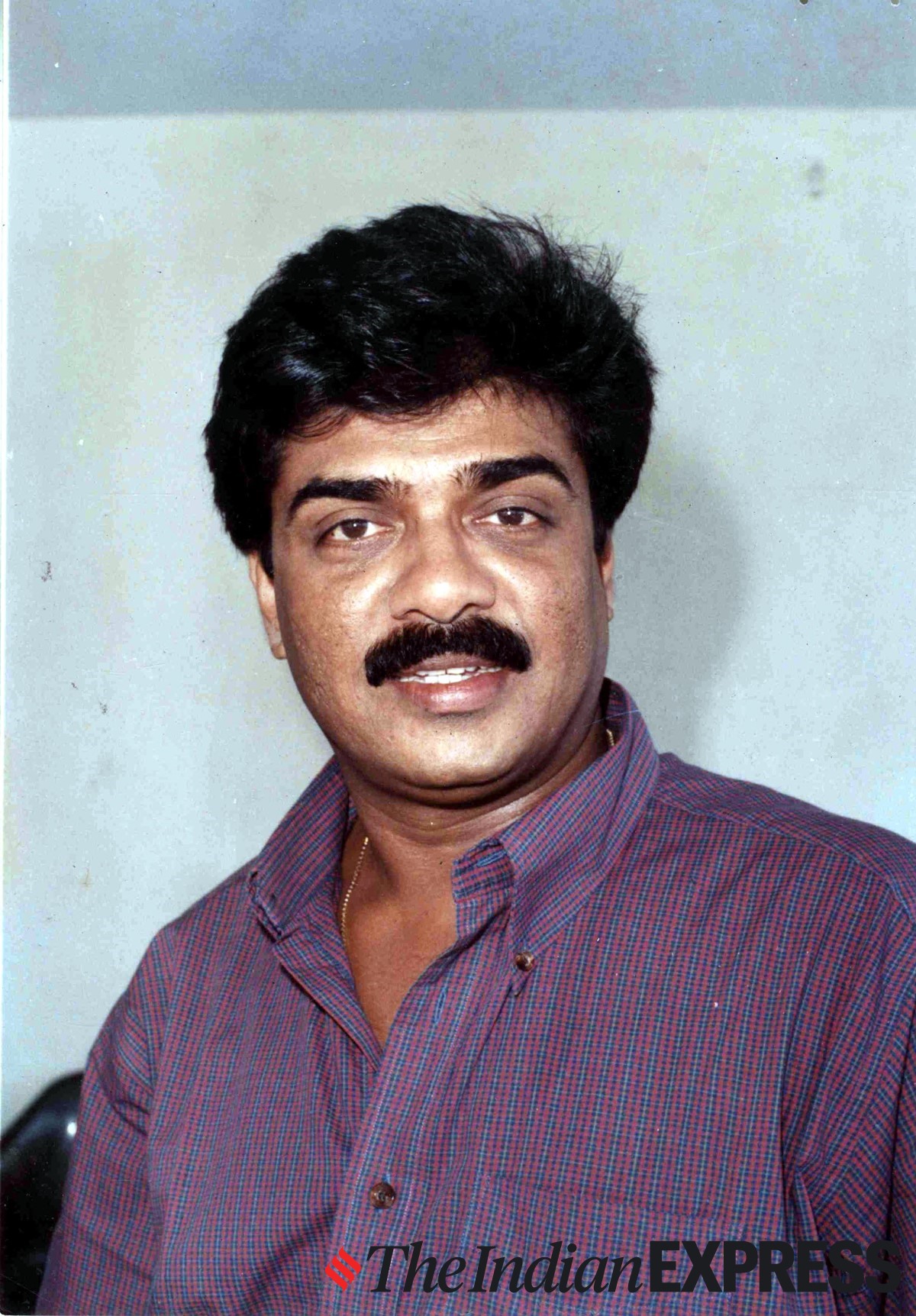 Despite Vijayaraghavan’s appearance in another film called Picnic in 1975, it was not until the 1980s that he started engaging in films more frequently. (Express archive photo)
Despite Vijayaraghavan’s appearance in another film called Picnic in 1975, it was not until the 1980s that he started engaging in films more frequently. (Express archive photo)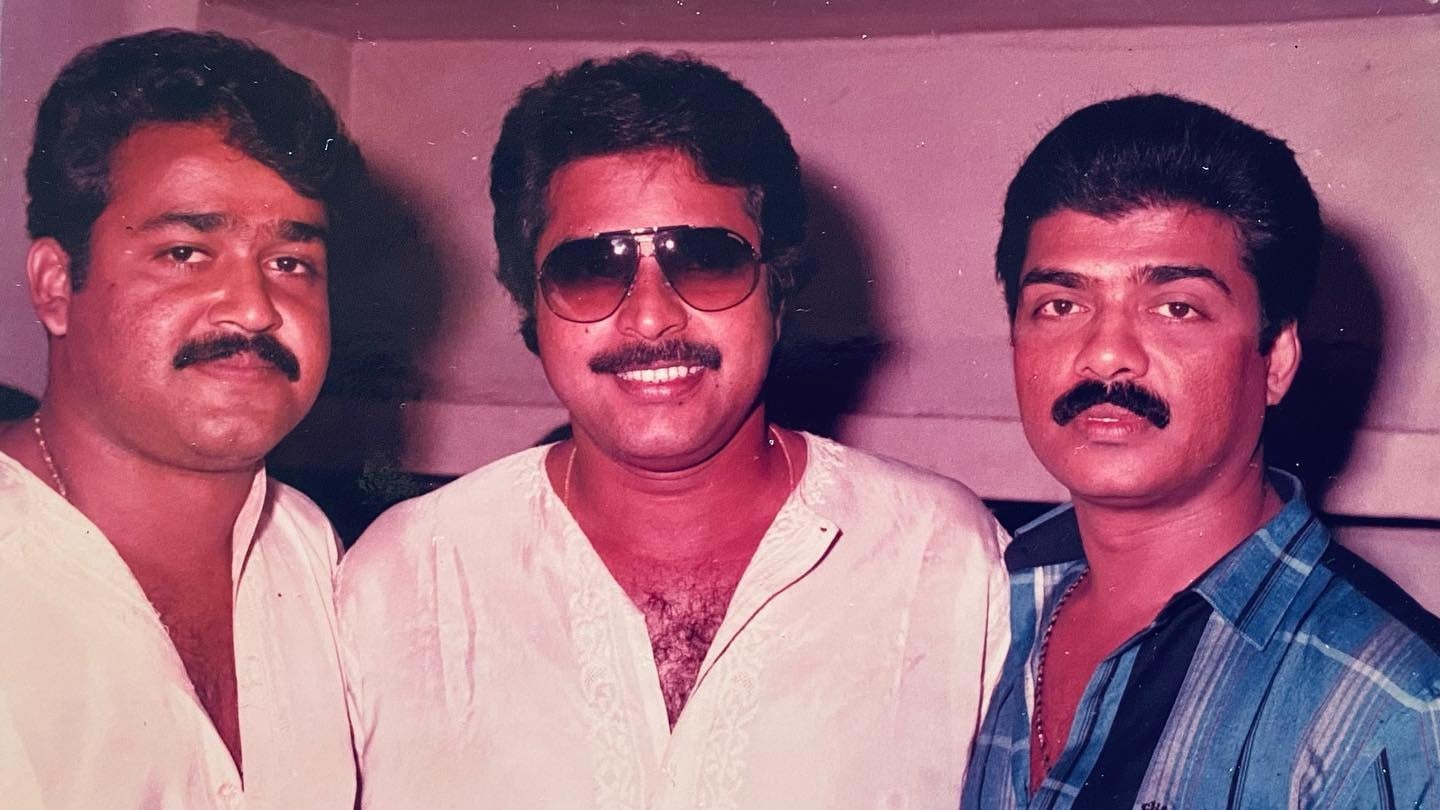 Vijayaraghavan with Mammootty and Mohanlal. (Image: Vijayaraghavan/Facebook)
Vijayaraghavan with Mammootty and Mohanlal. (Image: Vijayaraghavan/Facebook)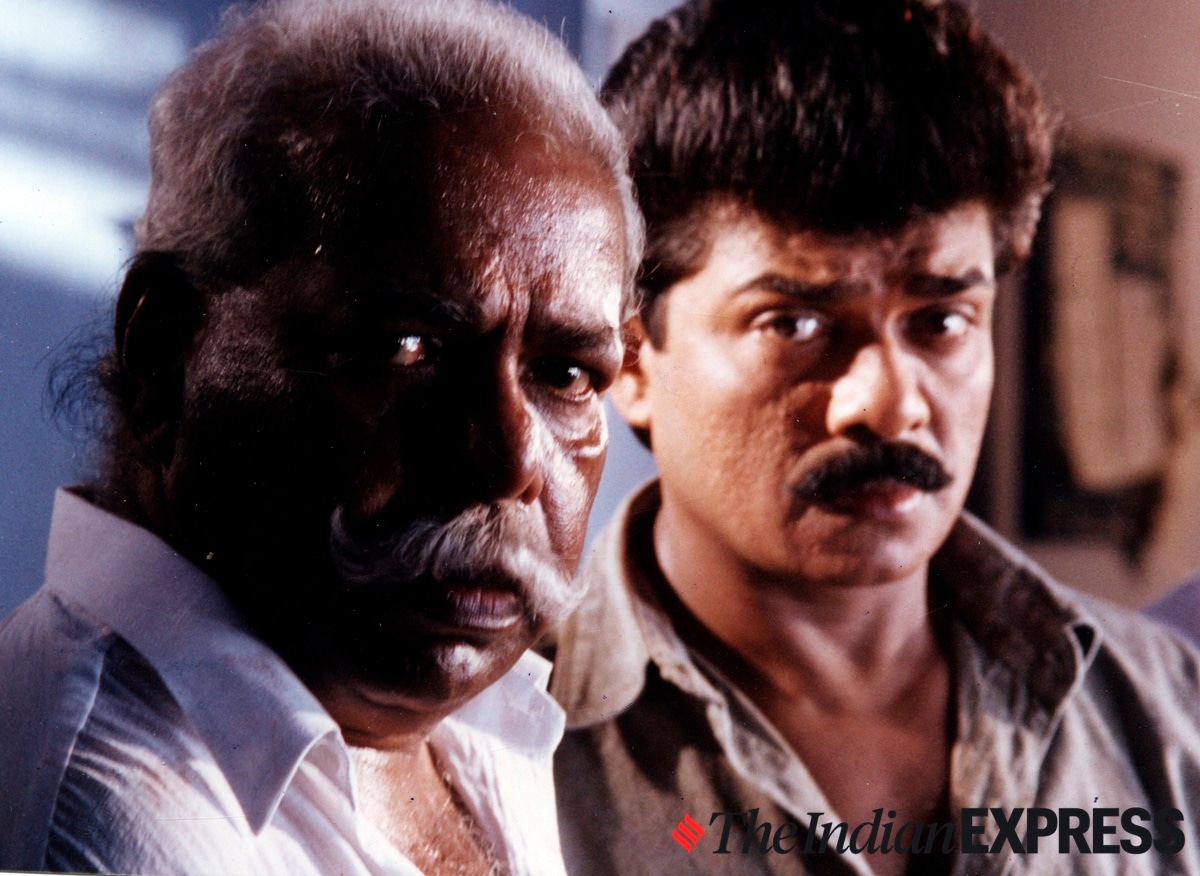 Vijayaraghavan with veteran actor Thilakan on the sets of Gandhiyan. (Express archive photo)
Vijayaraghavan with veteran actor Thilakan on the sets of Gandhiyan. (Express archive photo)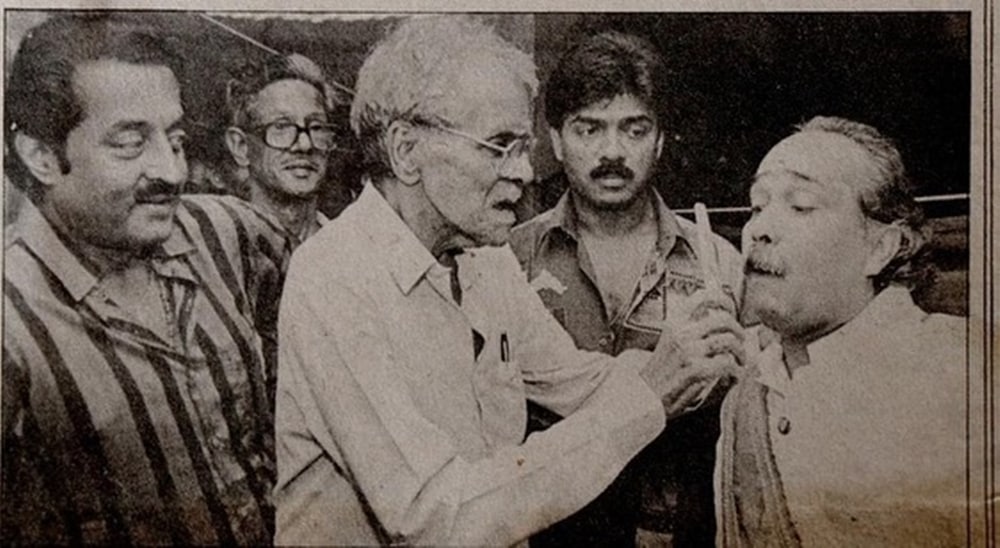 Vijayaraghavan with MG Soman and NN Pillai. (Image: Vijayaraghavan/Facebook)
Vijayaraghavan with MG Soman and NN Pillai. (Image: Vijayaraghavan/Facebook)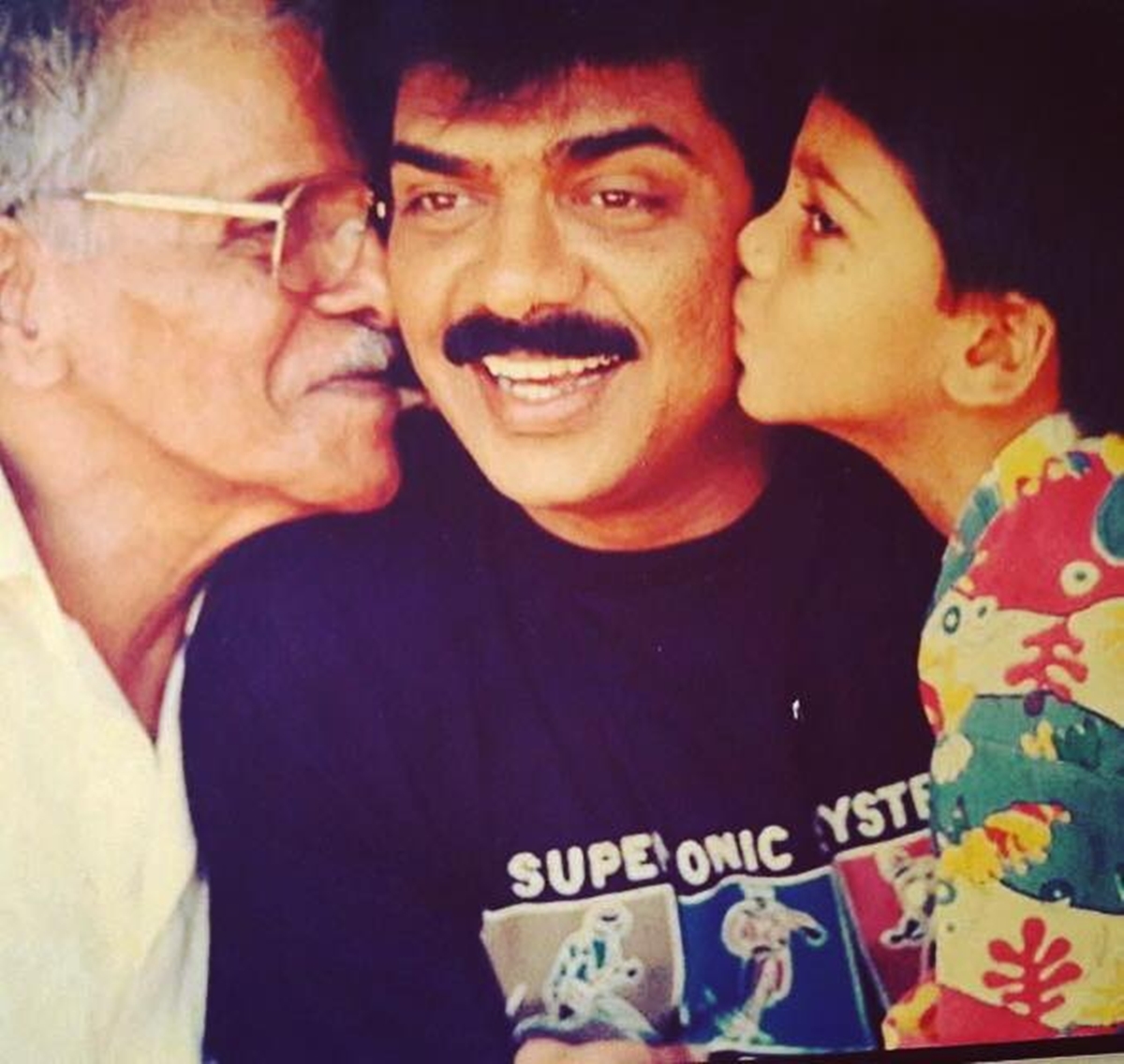 NN Pillai with Vijayaraghavan and his son. (Image: Vijayaraghavan/Facebook)
NN Pillai with Vijayaraghavan and his son. (Image: Vijayaraghavan/Facebook)
